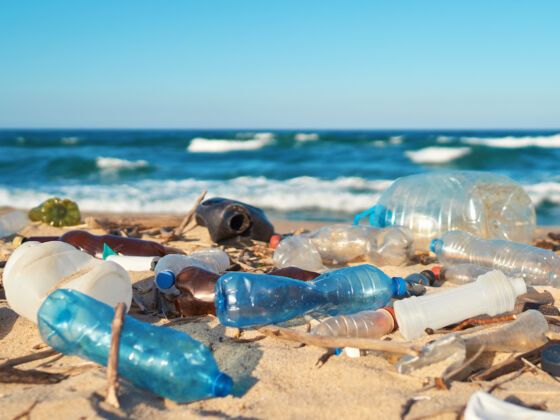Batten down your grandkids’ hatches, everybody. 2050 is shaping up to be a pretty grim year for humanity. Forecasted oil shortages, an urban density predicted to triple, a lack of accessible water for up to a third of the globe, and, hell, the California drought will probably still be going on. Add to that another grim prediction: according to a new study by the World Economic Forum, by the time your babies are having babies, there will be more plastic in the world’s oceans than there are fish.


Use of plastic has expanded twenty-fold in the past half-century and is expected to double over yet again in the next twenty years. Nearly a third of that is disposed of improperly. At the current rate, there is a garbage truck worth of plastic dumped in the ocean every minute; this is expected to quadruple in the time before the report’s dark predictions.
According to the report, a full 95% of the value of our used plastic is lost every year, an amount totaling over $80 billion annually. A 2010 study found that between 4.8 and 12.7 million metric tons entered the ocean each year.
However, the news is not all bad. The report also offers a solution, a new economy of plastic built around both a culture of recycling and advancements in technology that allows plastic to be broken down, perhaps even eventually made biodegradable or used as animal feed.
“By demonstrating how circular economy principles can be applied to global plastic flows, this report provides a model for achieving the systemic shift our economy needs to make in order to work in the long term,” said Dame Ellen MacArthur, whose foundation produced the report in conjunction with the WEF.
Currently, plastic is thought to exist in a 1:5 ratio with fish. The North Pacific Gyre collects much of it in what’s been deemed the Great Pacific Garbage Patch, a loose collection defined as somewhere between the size of Texas, and twice the size of the continental United States. Hopefully we can get that new economy started sooner rather than later.
Read the full report here.
h/t: USA Today